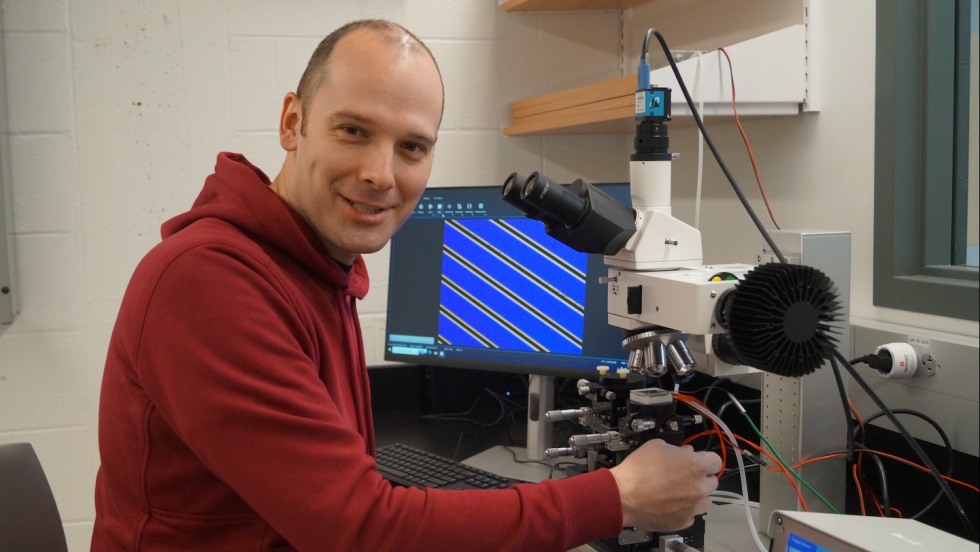Research Seed Funding awards are competitively awarded and help faculty more successfully advance competitive research proposals by supporting the generation of preliminary data, pursuing new directions or collaborations in research, and other endeavors. Investigators may propose projects in one of two categories. Category 1 - single PI projects of any type with budgets up to $50,000 for one year; Category 2 - multi-PI projects supporting a new collaboration between two or more disciplines with budgets up to $100,000 for one year.
Prof. Kuehne was honored for his work "Designing and controlling quantum optical properties at 1D-2D mixed dimensional interfaces."
Advancements in quantum information sciences rely largely on the experimental realization and control of quantum optical properties, such as single-photon emissions and superfluorescence. This necessitates the development of scalable quantum light sources in solid-state materials. While significant progress has been made in engineering these properties within confined excitonic systems, achieving highly tunable homogeneous quantum light in the telecom-wavelength range (1.3-1.6 µm) remains a formidable challenge. The PIs propose a new approach involving mixed-dimensional heterostructures, comprising single-walled carbon nanotubes (SWNTs) on hexagonal boron nitride (hBN) and transition metal dichalcogenides (TMDCs), to realize homogeneous quantum light sources in the telecom-wavelength range. The combination of expertise in SWNT synthesis and high-resolution microscopies in the Kuehne Lab, and the 2D quantum device fabrications and cryogenic spectroscopy/microscopy in the Bai Lab is coherent and will uniquely enable the implementation of this project. Engineering high-quality quantum light sources is a critical task in the ascending field of quantum information science; this collaborative effort will establish the groundwork for designing mixed-dimensional heterostructures for programmable quantum light sources, and will strengthen Brown’s position in quantum optical research. Importantly, the outcomes hold promise for the development of on-chip nanoscale quantum light sources with tunable, high homogeneity in telecom-wavelength emissions, garnering significant interest from various funding programs, including NSF-DMREF, NSF-EFRI, and MRSEC IRG topics.
PI: Yusong Bai, Assistant Professor of Chemistry
Co-PI: Matthias Kuehne, Assistant Professor of Physics
The full list of Seed Award recipients is available on the Office of the Vice President for Research's website.
